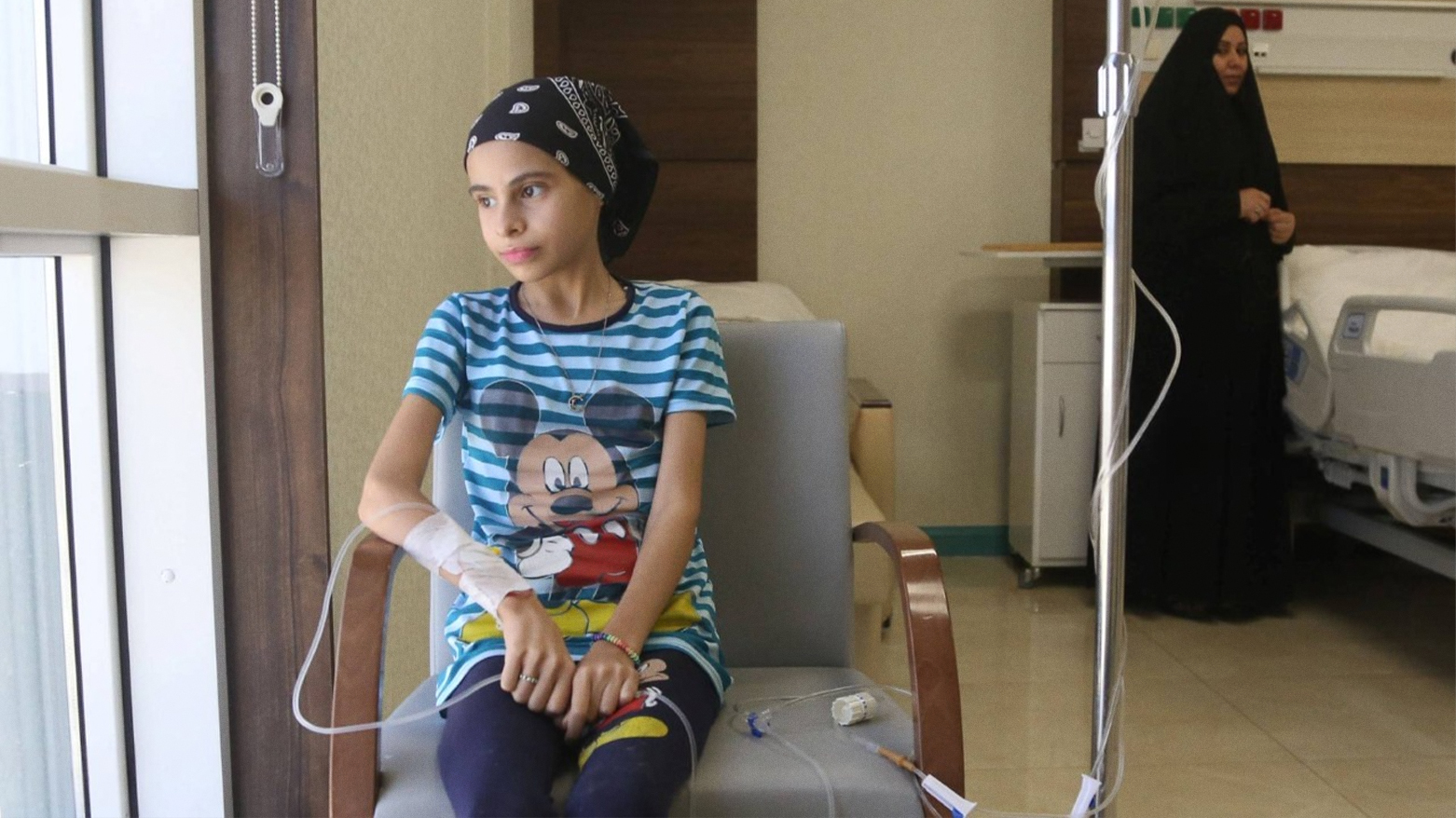'After Diagnosis, They’re Left Alone': Iraq’s Silent Cancer Crisis
“Beyond medical treatment, patients require psychological, financial, and social support,” Hassan Rawi, a community advocate, said. “The current system leaves them largely on their own.”

By Kamaran Aziz
ERBIL (Kurdistan24) – As Iraq confronts a mounting public health emergency, the Anbar Cancer Center stands at the forefront of a wider crisis sweeping across the country’s central and southern provinces. Operating since 2019 in post-conflict Anbar, the center has become a lifeline for thousands of patients. But behind its determined efforts lies a national healthcare system buckling under the weight of surging cancer diagnoses, systemic underfunding, environmental contamination, and regional disparities.
Amir Hazim, Director of the Technical Department at the Anbar Cancer Center, told Iraqi media on Tuesday that the center receives 100 to 120 patients daily, with approximately 60 to 70 new cancer cases registered every month. “We receive patients not only from within Anbar but also from Baghdad, Basra, and other central and southern provinces,” Hazim said.
Women, he noted, make up the majority of patients—reflecting global and national trends in breast cancer prevalence.
Hazim reported moderate success in patient outcomes, citing improvements due to adherence to treatment protocols. Yet civil society activists argue that access to care remains deeply inequitable.
Hassan Rawi, a community advocate, warned that while the Anbar Cancer Center is one of the region’s few medical successes since the fall of ISIS, it is severely underfunded. “Beyond medical treatment, patients require psychological, financial, and social support,” Rawi said. “The current system leaves them largely on their own.”
Their concerns echo a broader, more troubling reality. A recent in-depth report by Shafaq News reveals stories of patients across Iraq pushed to the brink by inaccessible treatment and exorbitant costs. One such case is that of Hassan Alwan al-Bahadli, a 42-year-old lung cancer patient who, after waiting in vain for a surgery appointment at Baghdad’s overcrowded Medical City Complex, was forced to sell his home to afford private care. “I saved my life, but lost everything else,” he told Shafaq.
Other patients, like the late Saadoun Hleel, never made it to the operating room. Diagnosed with lung cancer and seen only sporadically by visiting oncologists due to the absence of permanent specialists, Hleel died shortly after being discharged from Baghdad’s Al-Kadhimiyah Hospital with no active treatment administered.
Shafaq also revealed that just 25% of Iraq’s public hospitals house oncology departments, and many lack basic infrastructure such as chemotherapy pumps and radiation equipment. The crisis is especially severe in provinces like Al-Muthanna, Dhi Qar, and Nineveh, where a single radiotherapy machine or even a pediatric oncology unit may be unavailable, forcing families to travel hundreds of kilometers for care.
Meanwhile, environmental degradation is worsening the cancer crisis. A 2022 Human Rights Watch investigation linked a sharp rise in leukemia and other cancers in Basra to toxic pollutants from oil flaring—the practice of burning excess natural gas during petroleum extraction. Iraq is the world’s second-largest gas-flaring nation. The late Ali Hussein Jaloud, a young leukemia victim from Rumaila, Basra, became a national symbol of this environmental injustice. “Pollution from oil production is the main reason for rising cancer rates in Basra,” Iraq’s former environment minister Jassem al-Falahi admitted to the BBC.
The long-term neglect of the health sector is a crucial factor. As reported by The Arab Weekly, Basra recorded 2,300 cancer diagnoses in 2017 alone, amid deteriorating hospital conditions and medication shortages. Decades of war, corruption, and pollution—particularly radioactive contamination from depleted uranium munitions used in the Gulf and Iraq wars—have left health institutions hollowed out. Patients often pay out-of-pocket for chemotherapy drugs or travel abroad if they can afford it. “We still receive 250 cancer patients daily,” said Dr. Rafid Adil Abood of the Basra Oncology Centre, but many cases go unreported or untreated.
In response to criticism, the Ministry of Health has touted budget allocations that cover cancer treatments and surgeries, yet only three public hospitals across the country currently offer PET scans. Essential medicines such as paclitaxel and doxorubicin frequently vanish from hospital pharmacies, with some families resorting to black market purchases at inflated prices. A single chemotherapy vial can exceed $700, according to Shafaq.
Despite incremental progress, including expanded radiotherapy centers and over 400 bone marrow transplants conducted since 2013, systemic deficiencies remain. Hospitals like Amal Oncology in Baghdad operate at 120% capacity. While Iraq recently exported its first batch of locally produced cancer drugs to Libya, patients at home continue to suffer from chronic shortages and delayed diagnoses.
Activists and doctors alike say that unless the Iraqi government enacts immediate reforms—bolstering medical staffing, expanding oncology infrastructure, enforcing environmental protections, and ensuring equitable access to care—cancer will continue to claim lives not just through biology, but through policy failure.
The Anbar Cancer Center, though a beacon of dedication and resilience, stands amid this storm as both an inspiration and a warning. Without comprehensive reform, it may soon find itself overwhelmed by the very crisis it was built to fight.